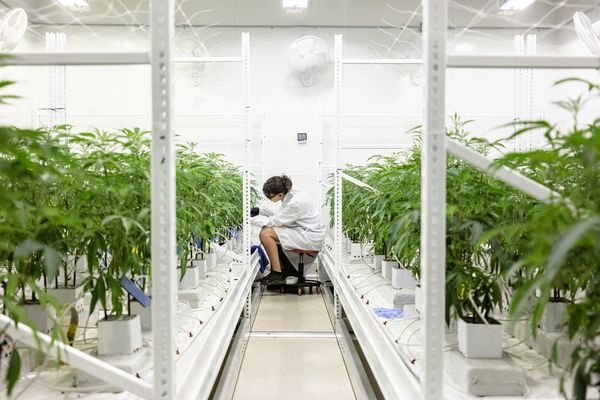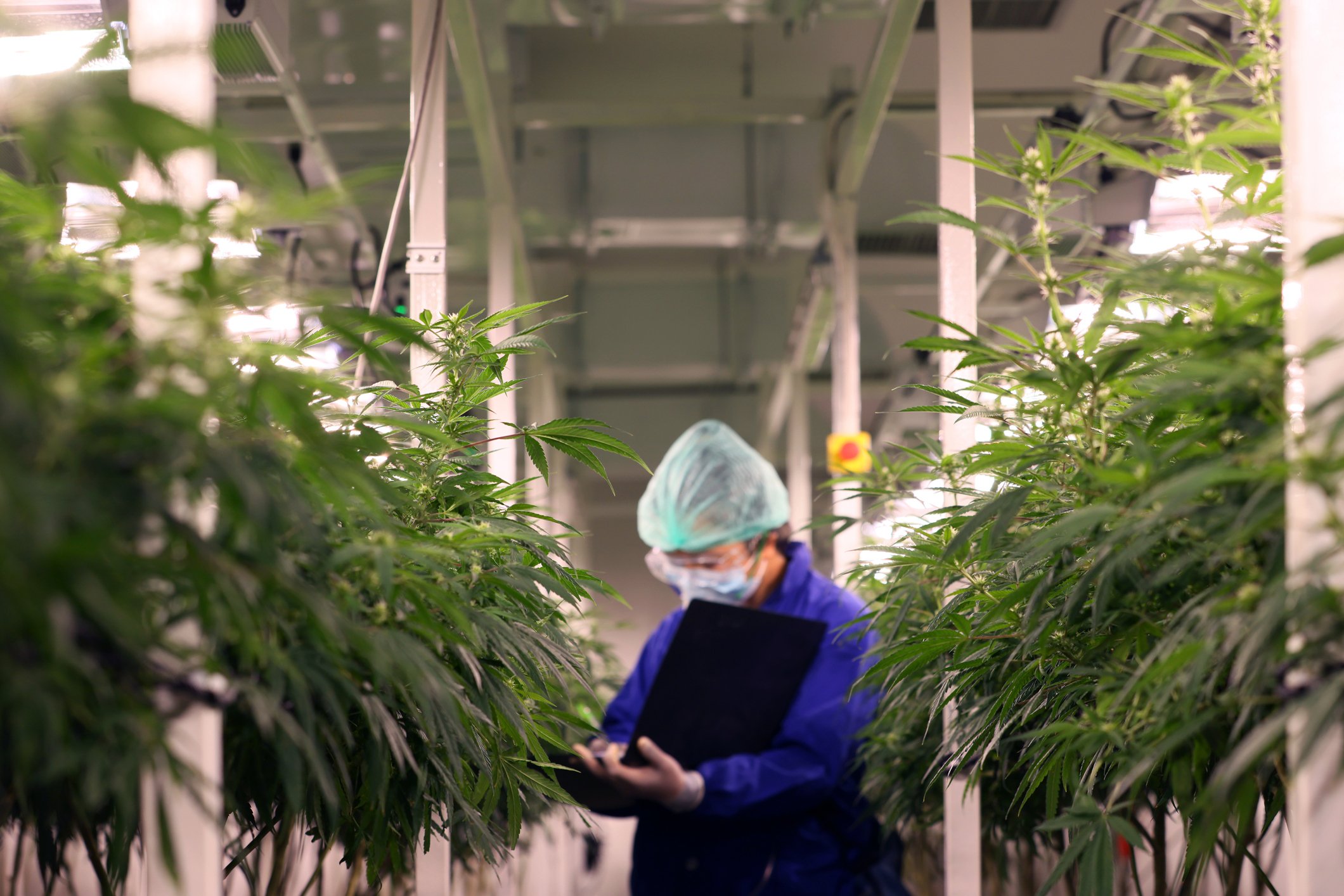The next decade should prove really special for the marijuana industry. Although growth estimates vary wildly on Wall Street, which we'd expect to see for an industry with no legal precedent in the modern era, legal cannabis sales should be capable of hitting $50 billion to $200 billion on an annual basis by 2030.
Then again, it's also an industry with a lot of growing up to do. In Canada, we've witnessed how regulatory and procedural issues, as well as the slow rollout of physical retail stores, have hampered legal weed sales. Meanwhile, states like California have been pestered by a resilient black market and exorbitant tax rates on legal pot. These growing pains are nothing new for next-big-thing investments.

Image source: Getty Images.
A looming recession could spell trouble for the cannabis industry
But there's another concern that the industry may have to contend with: the possibility of a recession.
Right now, the U.S. economy is in its longest period of economic expansion since recordkeeping began roughly 160 years ago. However, we know that contractions and/or recessions are a natural part of the economic growth cycle, which makes it likely that we're in the latter stages of the existing expansion cycle.
We've also witnessed our fair share of data that suggests a recession could be looming. An example would be the inversion of the yield curve a few months ago. A yield curve inversion is where longer-term bonds, which should have higher attached premium since you're giving up your money for an extended period of time, have lower yields than short-term Treasury notes. A yield-curve inversion has preceded every recession since World War II, but also note that not every inversion has been subsequently followed by a recession.
Other clues that a recession may be near include a three-month contraction in U.S. manufacturing, rising corporate debt levels, and steadily rising delinquency rates on auto loans (especially of the subprime credit category).
It's possible that the cannabis industry may possess some recession-resistant qualities. After all, vice plays aren't typically hit as hard as general retailers when economic contractions strike. Then again, access to capital could become even tougher, and the predictability of sales is always difficult when the U.S. or North American growth rate is pointing lower. Plus, we've never witnessed a legal pot industry during a recession in the modern era, so there's no precedent to examine.

Image source: Getty Images.
Say hello to the only recession-proof pot stock
However, there is one cannabis stock that does have the makings of being completely recession-proof. Everyone say hello to Innovative Industrial Properties (IIPR 0.12%).
What makes Innovative Industrial Properties so special is the company's corporate structure and business model. IIP, as the company is also known, is a cannabis-focused real estate investment trust (REIT). It acquires land, medical marijuana grow farms, and processing facilities, then leases these assets out for an extended period of time in the hope of reaping the reward of rental income. As a REIT, IIP avoids the normal corporate income tax rate, but is required to pay out a significant portion of its earnings to shareholders in the form of a dividend. This is what makes Innovative Industrial Properties the only pure-play pot stock to pay a dividend.
So, one component of the story is the company's corporate structure. The other factor that makes IIP special is its business model of leasing out these assets for very long periods of time to a diverse group of cannabis companies across the United States. As of this past week, the company owned 38 properties that were being leased in 13 states. For context, it only began the year with 11 properties in its portfolio, so it's been a busy bee.
What these lease contracts provide for Innovative Industrial Properties is something that no virtually no other pot stock brings to the table: certainty. The weighted-average remaining lease term on these 38 contracts is 15.6 years, and the current yield on its $403.3 million in invested capital is 13.8%. In layman's terms, IIP should have a complete payback on its invested capital in a hair over five years.

Image source: Getty Images.
What's more, IIP has built modest organic growth into its lease contracts. It passes along a 3.25% annual rental increase to its tenants, as well as requires a 1.5% property management fee that's based on the rental rate. This organic growth ensures that IIP stays ahead of the inflationary curve.
It should also be noted that the financing concerns most U.S. pot stocks may contend with during a recession don't really apply to IIP. That's because REITs, regardless of industry, tend to sell their own common stock when raising capital. Even though selling stock is dilutive, this is a common practice for REITs, and it's a readily available option for Innovative Industrial Properties should it want to continue expanding its portfolio. For what it's worth, IIP has a history of quickly shaking off the negatives associated with capital raises.
To summarize, investors in Innovative Industrial Properties enjoy predictable sales and cash flow because of its long-term contracts. This should allow IIP to completely brush off any concerns about a looming recession.






